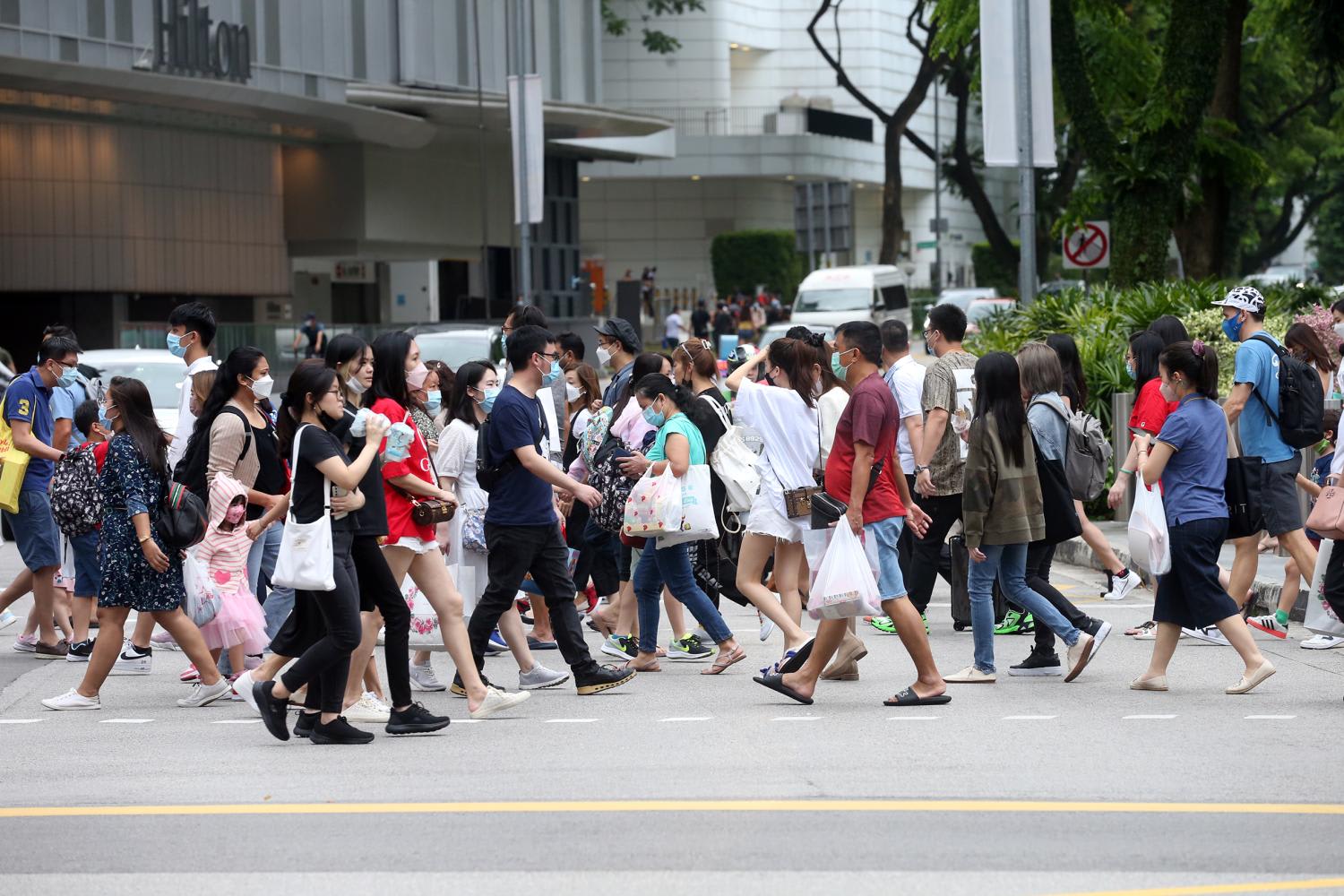Commentary: Scene is set for Singapore to play crucial leadership role in global AI arena

The release of the National AI Strategy 2.0 in December 2023 distinguished Singapore as one of the select few countries to proactively identify the inflection point of AI development, say the authors.
Recent moves by key Singapore government agencies overseeing the development of artificial intelligence (AI) have indicated a shift in the Republic’s status: From leader in the local adoption and development of AI, to a global actor spearheading innovative AI solutions and international discourse on the regulation and advancement of AI for good.
The release of the National AI Strategy 2.0 in December 2023 distinguished Singapore as one of the select few countries to proactively identify the inflection point of AI development with rapid advancements in generative AI and large language models, and meet this with a rigorous, revised approach to stay ahead.
The significance of Singapore’s 2.0 strategy should not be understated as it marks a pivotal shift in the way Singapore approaches AI.
No longer will AI be seen as an emerging technology to be incrementally trialled within testbeds. Instead, it will be treated as an enabling technology that must be primed for deployment across all sectors.
In his Budget speech on Feb 16, Deputy Prime Minister Lawrence Wong announced that S$1 billion will be spent on AI over the next five years, setting the stage for the country’s already strong momentum to be further accelerated.
HOW SINGAPORE IS LAYING THE GROUNDS FOR AI LEADERSHIP
The last few years have seen significant progress in Singapore’s AI capabilities. In 2020, they were ranked 10th in the Tortoise Global AI Index. Three years later, they sit 3rd.
On AI intensity, which measures AI capacity relative to the size of a country’s population or economy, the Index awards Singapore the top score of 100, the only country to receive this score.
These leaps were a long time in the making.

Singapore was the first country in Southeast Asia to launch a national AI strategy.
The country’s research and development spending on AI in relation to gross domestic product exceeds that of the United States by 18 times. Much of this core spending has been directed towards AI-era infrastructure.
New research from the Tony Blair Institute for Global Change shows that Singapore’s compute capacity is particularly notable. The country had the highest per capita server installed base, and the second-highest data centre capacity relative to its population size.
Data centres, filled with specialised AI servers, form the backbone of infrastructure that is needed to train and deploy AI workloads at scale, providing Singapore with a strong foundation to build its AI ecosystem.
Singapore has also made strategic choices to build strong partnerships with technology companies — such as with Amazon and Microsoft to provide cloud services optimised for machine learning, and Google Cloud Platform to build a Government AI Research Cluster to provide compute to startups and the public sector.
With part of the latest S$1 billion dedicated to securing greater chip sovereignty, deepening these relationships will be critical.
Together with dedicating significant financial resources, the fostering of such a research cluster is just one of many projects which shows how Singapore is building its AI muscle.
With compute capabilities at the heart of government, as well as sandboxes seeding innovative AI use cases across public and private sector, Singapore is also building meaningful state capacity in AI to ensure that its deployment across the public and private sector is as effective as possible.
This also signals Singapore’s potential strategy of play in the global arena of AI leadership.
As a smaller country with limited market size, it is unlikely that Singapore will be able to match counterparts such Europe in being first movers on regulation that will inform adoption elsewhere.
However, as an agile country with high state capacity, Singapore is well-suited to trial best case attempts in AI governance, provide proof of concept, and set an example for the likes of the US, Europe, and China to follow similar approaches.
In this sense, governing compute through national research clusters, and leading on developing new sustainable AI standards is where the country can be highly effective.
LEADERSHIP IN INTERSECTION OF AI AND CLIMATE
Singapore is also carving out a space as a forward-looking leader on emerging issues around AI. One of these relates to AI’s potential impact on climate change.
Despite its transformative potential, training and deploying AI consumes significant amounts of energy.
A recent study by VU Amsterdam School of Business and Economics projects that by 2027, market leader Nvidia will see its new AI servers consume over 85.4 terawatt-hours annually, exceeding the total energy usage of countries such as Sweden and Argentina.

In the global race to develop increasingly advanced AI applications, the ensuing demand for energy will only continue to expand, creating the risk of higher carbon emissions if new compute infrastructure is powered by carbon-intensive energy, potentially impacting countries and companies’ ability to meet their climate commitments.
Part of the problem is the hardware and energy that powers AI. Data centres, facilities where AI computing occurs, consume huge amounts of energy and thus need to be as energy efficient as possible.
Recognising this risk, Singapore sets itself ahead as a forerunner when it published, in June 2023, the world’s first set of standards for optimising energy efficiency in tropical data centres.
The Republic is cementing its leadership in this space by being among the first to recognise the importance of optimising energy efficiency not only on the hardware side of the issue but the software as well.
In January 2024, Senior Minister of State for Communications and Information Janil Puthucheary announced the establishment of a S$30 million green computing fund by the Infocomm Media Development Authority, as well as forthcoming trials to work closely with industry to better understand green software and test the efficacy of techniques to reduce energy use.
As the world grapples with escalating energy usage and carbon footprints from advanced AI technology, Singapore’s foresight will continue to offer solutions for other countries to deploy alongside efforts to decarbonise their grids.
LEVELLING UP SINGAPORE’S EFFORTS IN TALENT DEVELOPMENT AND QUANTUM COMPUTING
Although Singapore is leading the pack in many AI domains, there are also ample areas for growth. Certain factors are beyond Singapore’s immediate control, but they also present opportunities for Singapore's AI journey.
Singapore, like many other countries, is grappling to meet demand for AI talent and skills.
There is an opportunity for the country to ensure that any moves to bolster the strong foundation of its AI workforce strive to look beyond technical roles and cultivate an ecosystem of users and supporting functions critical for AI to thrive.
These include cultivating a healthy number of AI ethicists, policy and regulation experts, as well as business development and marketing teams adept at ensuring AI products are compliant, ethical and market-ready.
The success of AI development will also be contingent on creating a workforce and user base with adequate understanding and ability for effective adoption.
Singapore is already at the frontier of AI adoption and the development of standards and policy, and is well positioned to lead in global discourse with insights and use cases of the benefits of AI at a national level.
As the world contends with the urgency of climate change and the various challenges and opportunities posed by AI, Singapore should continue to leverage upon its lead while making strides in talent cultivation and AI-adjacent industries.
The world is watching, and Singapore's strategic leaps in AI are an example from which others can learn and be inspired by.
ABOUT THE AUTHORS:
The writers are from the Tony Blair Institute for Global Change. Tom Westgarth and Kenddrick Chan are senior policy analysts; Marie Teo is community manager.







